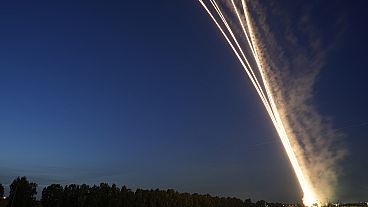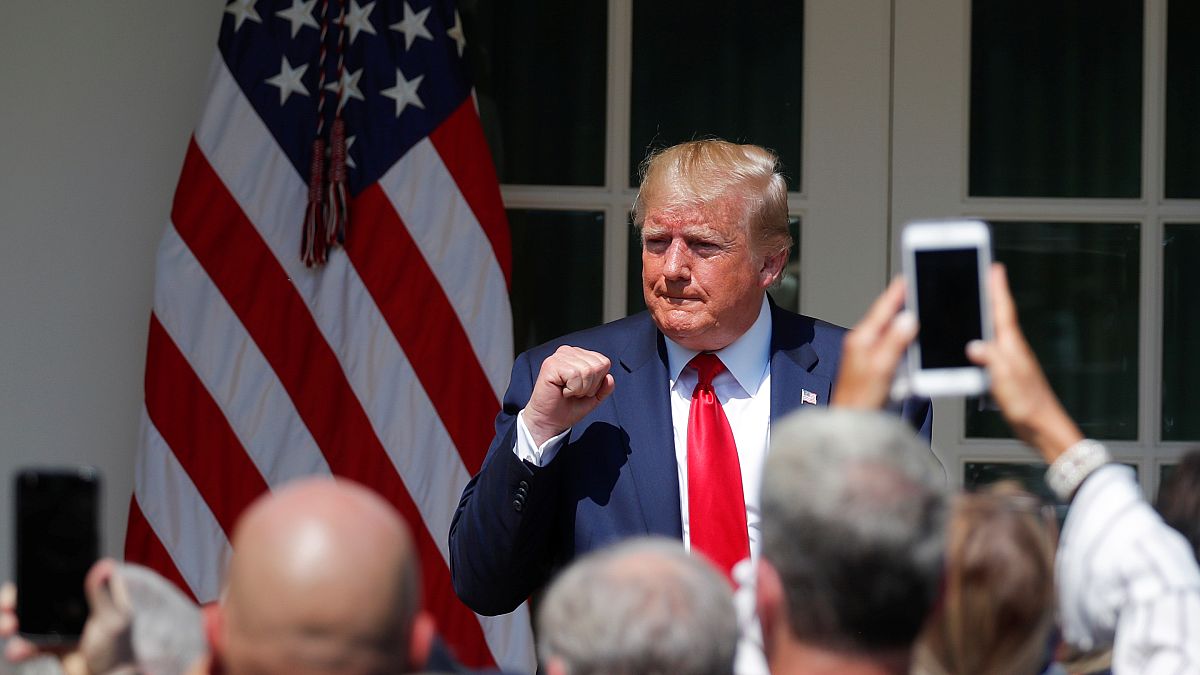"#IchbinAntifa" became the number one trending hashtag on Twitter in Germany after US President Donald Trump said on Saturday he may declare the anti-fascist network a terrorist organization.
"#IchbinAntifa" ("I am Antifa") became the number one trending hashtag on Twitter in Germany after US President Donald Trump said on Saturday he may declare the anti-fascist network a terrorist organisation.
Such a measure "would make it easier for police to do their job," Trump wrote on Twitter.
The US president's tweet sparked tens of thousands of reactions on the social platform, with 144,000 likes and close to 67,000 interactions.
Politicians and citizens in Germany rallied under the hashtag #IchBinAntifa to criticise the US President's attack against the anti-fascist network.
"#IamAntifa always and everywhere. German history obliges us to stand up against racism and fascism. On the street and in Parliament. #NeverAgain," wrote Bernd Riexinger of the far-left Die Linke party.
His reaction was echoed by many other Twitter users - including Marian Kamensky, whose cartoon published in Der Spiegel newspaper shows Trump calling 'terrorist' an Antifa activist destroying a Nazi Swastika.
Another Twitter user mocked so-called "Antifa violence" with a picture of the Allied D-Day landings of 1945.
A counter hashtag #IchBinNichtAntifa (I am not Antifa) also quickly emerged on Twitter.
"Antifa represents the other side of extremism," one user wrote.
"Trump is right: such extreme groups should be prohibited," said Alice Weidel, leader of the far-right party Alternative for Germany.
Antifa became more visible in the US after the Charlottesville protests in 2017. White supremacists flocked to the city to protest the removal of a Confederate general statue while the Antifa gathered in a counter-protest, resulting in a violent confrontation.
Trump blamed the violence on "both sides" after the death of a young woman who was demonstrating against white nationalism.
According to the Anti-Defamation League, which defines Antifa as a "loose collection of groups, networks and individuals who believe in active, aggressive opposition to far right-wing movements," their exact number is not known.


